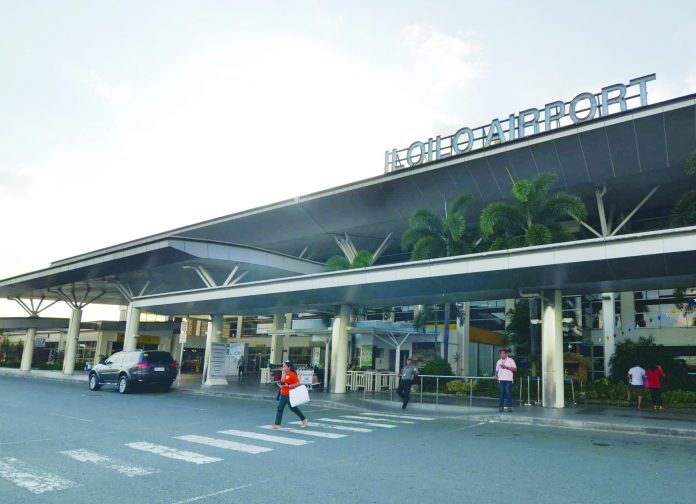
BY GEROME DALIPE IV
ILOILO City – Prime Asset Ventures Inc. (PAVI), the holding company of real estate magnate and former senator Manuel B. Villar Jr., has shown interest to rehabilitate and operate the Iloilo Airport.
In a letter dated May 6, Enrique Antonio Esquivel III, assistant secretary for aviation and airports of the Department of Transportation (DOTr), informed Mayor Jerry Treñas that they have started evaluating the unsolicited proposal of PAVI on April 26, 2024.
“I am asking the DOTr that the process move forward soon,” said Treñas.
The “negotiation” period is expected to be completed within 80 calendar days but may be extended up to 150 days.
Esquivel said the DOTr, the Civil Aviation Authority of the Philippines (CAAP), and the Public Private Partnership (PPA) Center intend to complete the negotiation before the deadline.
Once the negotiations are completed, the project proposal will be submitted to Transportation Secretary Jaime Bautista and the CAAP Board for approval before undergoing a Swiss challenge.
Esquivel’s letter came after Treñas renewed his call to Bautista to hasten processes for the development or privatization of Iloilo airport.
He also called on CAAP to explain what happened to the P190 million Sen. Grace Po allocated to the agency to repair the airport’s facilities last year.
The Villar group submitted an unsolicited proposal for the operation, maintenance, and expansion of the Iloilo airport as early as 2018. PAVI has an authorized capital of P10 billion, with Villar holding 99.99 percent of the company.
However, it suffered a setback due to the newly- enacted Republic Act 11966 or the Public-Private Partnership (PPP) Code of the Philippines, which outlined guidelines on how the implementing agency and project proponent carry out such projects.
It took effect on Dec. 23, 2023, while its implementing rules and regulations (IRR) took effect on April 7, 2024.
The DOTr targets to award the project within the first quarter of 2025.
“The Department of Transportation shares the desire of the people of Iloilo City and the Province for a renewed, modernized, expanded, sustainable, and future-proof Iloilo International Airport,” said Esquivel.
Under the PPP Code, the implementing agency shall consider significant issues and concerns in the project implementation.
These include the legal, technical, economic, financial, and commercial feasibility of the project, as well as value for money, climate resilience and sustainability; and social and environmental safeguards.
The development of such a project shall commence only after the conduct of stakeholder consultation, the law provides.
The implementing agency shall secure first the approval of their respective city or town council and the local development councils.
The agency is also authorized to “identify, develop, assess, evaluate, approve, negotiate, award, and undertake” the public- partnership projects.
The approval by the National Economic Development Authority (NEDA) is necessary for the proposed project worth more than P15 billion.
How will the private entity earn from the venture?
Under the law, the private partner may recover its investment and earn “reasonable profit” through revenue-based schemes such as collections from users, reasonable tolls, fares, fees, and rentals, among other charges as stipulated in the agreement.
At the end of the PPP under the joint venture contract, all properties covered by such agreement shall be transferred or reverted to the implementing agency.
If the government decides to divest its interest in the joint venture “in the best interest of the public,” the PPP contracts may allow the private sector to take over the undertaking of the project in its entirety.
Likewise, the private partner may also divest its ownership, rights, or interests in a PPP project subject to the approval of the implementing agency and after the lock-in period.
The implementing agency may also divest its ownership, rights, or interests in the projects subject to the approval of the state governing bodies and existing laws.
Except for the Supreme Court, the law prohibits lower courts from issuing restraining orders, preliminary injunctions, or similar provisional remedies against the implementing agency or the PPP Center to restrain, prohibit, or compel them during the evaluation of unsolicited proposals, bidding, awarding of contract, or construction, among others.
The implementing agency is also mandated to adopt a full public disclosure of all its transactions involving public interest and keep an open, fair, transparent, and competitive selection in securing private investment in PPP projects./PN



